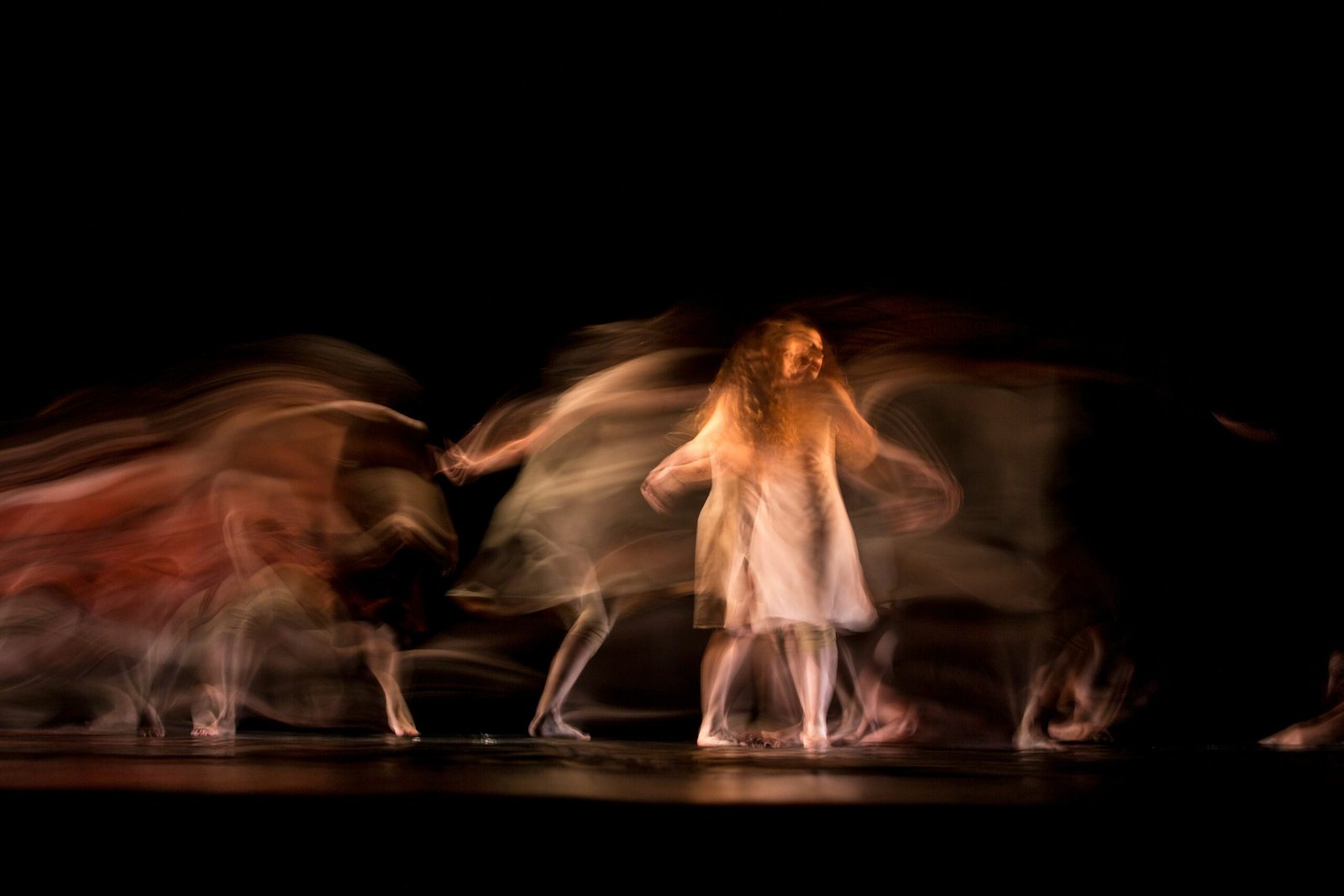
Performing Arts: Transcending Language and Culture
One of the most beautiful aspects of performing arts is its ability to transcend language barriers and cultural differences. Regardless of where you come from or what language you speak, the power of music, dance, and theater can touch your soul and evoke emotions that are universally understood. Whether it’s the haunting melody of a violin, the graceful movements of a ballet dancer, or the powerful delivery of lines by a talented actor, performing arts has the extraordinary ability to communicate on a primal level.
Transporting us to Different Worlds
Moreover, performing arts have the power to transport us to different worlds and immerse us in unique experiences. When we attend a live performance, we are transported to a different time and place, whether it’s the streets of 19th-century Paris in a production of Les Misérables or the magical world of Hogwarts in a stage adaptation of Harry Potter. The combination of music, set design, costumes, and acting creates a multisensory experience that allows us to escape from our everyday lives and embark on a journey of imagination.
Platform for Creativity and Individuality
Furthermore, performing arts provide a platform for artists to express their creativity and individuality. Whether it’s a composer creating a symphony, a choreographer choreographing a dance piece, or a playwright writing a script, performing arts allow artists to bring their unique vision to life. This freedom of expression not only allows artists to showcase their talents but also encourages innovation and pushes the boundaries of what is considered traditional or conventional.
Fostering Empathy and Understanding
Another remarkable aspect of performing arts is its ability to foster empathy and understanding. When we witness a performance that explores themes of love, loss, joy, or struggle, we are given the opportunity to step into someone else’s shoes and see the world through their eyes. This ability to empathize with others is crucial in building bridges between different communities and fostering a sense of unity and compassion.
Personal Growth and Development
Lastly, performing arts have a profound impact on personal growth and development. For individuals who participate in performing arts, whether as a hobby or a profession, it provides a platform for self-expression, self-discovery, and personal transformation. The process of rehearsing, collaborating with others, and performing in front of an audience can boost confidence, enhance communication skills, and develop a strong sense of discipline and dedication.
The Power of Music
Music has been an integral part of human civilization for centuries, serving as a means of communication, celebration, and self-expression. From ancient civilizations to modern societies, music has played a crucial role in shaping cultures and connecting individuals across different backgrounds.
Evoking Emotions
One of the remarkable aspects of music is its ability to evoke emotions. Whether it’s a melancholic melody that brings tears to our eyes or an upbeat rhythm that makes us want to dance, music has a way of tapping into our deepest emotions and allowing us to experience a wide range of feelings. It has the power to uplift our spirits, provide solace during difficult times, and even serve as a form of therapy.
Bringing People Together
Moreover, music has the unique ability to bring people together. It transcends language barriers and cultural differences, creating a sense of unity among individuals who may otherwise have little in common. Think about attending a live concert or music festival, where people from all walks of life come together to celebrate a shared passion for music. In those moments, it doesn’t matter who you are or where you come from – the music becomes the common thread that binds everyone together.
Transporting us to Another World
Furthermore, music has the capacity to transport us to another world. When we listen to a piece of music, we are transported to a different time, place, or even an imaginary realm. The harmonies, melodies, and lyrics can paint vivid pictures in our minds and ignite our imagination. Whether it’s the haunting melodies of a classical symphony that whisk us away to a bygone era or the pulsating beats of a lively salsa that transport us to the vibrant streets of Latin America, music has the power to take us on a journey without ever leaving our seats.
Expression Beyond Words
For artists, music is a medium through which they can express their thoughts, feelings, and experiences in a way that words alone cannot capture. It allows them to convey complex emotions and ideas, transcending the limitations of language. Through their compositions, musicians can tell stories, share personal narratives, and shed light on social issues. They have the ability to touch hearts and minds, leaving a lasting impact on their listeners.
The Universal Language of Dance
Dance is not only a form of expression but also a means of connecting with oneself and others. It allows individuals to explore their innermost thoughts and feelings, transcending the limitations of verbal communication. Through the fluidity of movement, dancers are able to convey their deepest emotions, making dance a universal language that speaks directly to the soul.
Telling Stories through Movement
One of the most captivating aspects of dance is its ability to tell stories. Whether it is through the precise technique of classical ballet or the raw and dynamic movements of contemporary dance, dancers have the power to transport audiences to different worlds and evoke a myriad of emotions. They become storytellers, using their bodies as a canvas to paint vivid narratives that resonate with people of all ages and backgrounds.
A Spectrum of Expressions
Moreover, dance is not limited to a specific style or genre. It encompasses a vast spectrum of forms, each with its own distinct vocabulary and aesthetics. From the graceful and ethereal movements of ballet to the energetic and rhythmic beats of hip-hop, dance offers a diverse range of expressions that cater to different tastes and preferences.
Discipline and Self-Discovery
Furthermore, dance is a discipline that requires immense dedication, discipline, and physical stamina. Dancers spend countless hours perfecting their technique, honing their skills, and pushing their bodies to the limit. They undergo rigorous training, often starting at a young age, to develop the strength, flexibility, and endurance necessary to execute intricate and demanding choreography.
A Journey of Self-Expression
However, beyond the technical aspects, dance is also a form of self-discovery and personal growth. It allows individuals to explore their own identities, push their boundaries, and discover new facets of themselves. In the process, dancers develop a deep sense of self-confidence, resilience, and self-expression that extends beyond the dance floor into all aspects of their lives.
The Magic of Theater
The magic of theater lies in its ability to captivate and engage audiences in a way that no other art form can. When the lights dim and the curtain rises, a transformation occurs. The stage becomes a world of its own, and the actors become the vessels through which stories are told.
Delving into Characters
Actors have the unique opportunity to delve deep into the psyche of their characters, to understand their motivations, fears, and desires. They must embody these characters, bringing them to life with every word and movement. Through their performances, actors have the power to elicit a wide range of emotions from the audience – from laughter to tears and everything in between.
A Collaborative Art Form
But theater is not just about the actors. It is a truly collaborative art form, where every element works together to create a cohesive and immersive experience. Directors play a crucial role in shaping the overall vision of the production, guiding the actors and making artistic choices that enhance the storytelling. Designers, such as set, costume, and lighting designers, create the physical world in which the story unfolds, adding depth and texture to the performance.
Challenging Norms and Provoking Thought
Theater also has the power to challenge societal norms and provoke thought and discussion. Through the exploration of complex themes and controversial topics, plays can shed light on important social issues and spark conversations that may not otherwise occur. By presenting different perspectives and offering a space for dialogue, theater has the potential to bring about change and promote understanding.
A Living, Breathing Art Form
Furthermore, theater is a living, breathing art form. Each performance is unique, with no two shows ever being exactly the same. The energy and connection between the actors and the audience create an electric atmosphere that is palpable. It is this live interaction that sets theater apart from other forms of entertainment, as it allows for an immediate and visceral experience.
The Impact of Performing Arts on Education
Furthermore, the performing arts have a significant impact on education. They provide a unique avenue for learning and personal development. By participating in theatrical productions, dance recitals, or musical performances, students are able to apply and refine a wide range of skills.
Promoting Collaboration and Teamwork
Firstly, the performing arts promote collaboration and teamwork. Whether it’s a group of actors working together to stage a play or a choir harmonizing in perfect unison, performing arts require individuals to work together towards a common goal. This fosters a sense of unity and teaches students the value of cooperation.
Encouraging Creativity and Critical Thinking
Moreover, the performing arts encourage creativity and critical thinking. Through the process of rehearsing and performing, students are encouraged to think outside the box, experiment with new ideas, and find innovative solutions to artistic challenges. This cultivates their ability to think creatively and problem-solve, skills that are valuable in all areas of life.
Developing Self-Discipline and Perseverance
Additionally, the performing arts help students develop self-discipline and perseverance. Learning a dance routine or memorizing lines for a play requires dedication and commitment. It teaches students the importance of practice, hard work, and resilience in achieving their goals.
Facilitating Self-Expression and Self-Discovery
Furthermore, the performing arts provide a platform for self-expression and self-discovery. Many young people struggle to find their voice or express their emotions, and the performing arts offer a safe and supportive environment for them to do so. Whether it’s through acting, dancing, or singing, students are able to explore different aspects of their identity and gain a deeper understanding of themselves.



